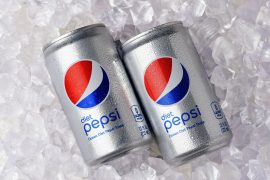
Are artificial sweeteners messing with your memory? What a new study says
Artificial sweeteners have been sold as the “guilt-free” way to get your sweet fix without the sugar crash. They are found in diet sodas, protein drinks, low-sugar yogurts, energy boosters, and a lot of snacks that claim to be healthy.
But a new study is raising red flags, especially for people who rely on these sugar substitutes daily.
Common sweeteners and memory
A team of researchers tracked over 12,000 adults in Brazil for nearly a decade. Their findings suggest that some of the most common low- and no-calorie sweeteners may be linked to faster decline in memory, thinking speed, and language skills.
According to the researchers, the effects were more noticeable in middle-aged people and those with diabetes.
The participants were divided into three groups based on how much artificial sweetener they consumed.
The lowest group averaged 20 milligrams per day. The highest group? About 191 milligrams per day – roughly the amount of aspartame in one can of diet soda.
Over eight years, the researchers tested how well people remembered words, processed information, and spoke fluently.
Artificial sweeteners and brain aging
After adjusting for factors like age, sex, blood pressure, and heart conditions, the team found something striking. Individuals who consumed the most artificial sweeteners experienced a 62% faster decline in thinking and memory skills compared to those who consumed the least.
That’s similar to adding about 1.6 years of aging to the brain. Even those in the middle range declined 35% faster – equivalent to about 1.3 years of aging.
The results were even more striking for people under 60. Those who consumed the highest levels of sweeteners in this age group had steeper declines in cognitive performance compared to light users. The connection was especially strong in people with diabetes.
Which sweeteners matter most
The study looked at seven popular sugar substitutes: aspartame, saccharin, acesulfame-K, erythritol, xylitol, sorbitol, and tagatose.
Most of them showed a connection to faster mental decline. Specifically, aspartame, saccharin, acesulfame-K, erythritol, xylitol, and sorbitol were all linked to poorer performance over time. Only one – tagatose – was not associated with any decline.
Sorbitol stood out as the most heavily consumed sweetener in the group, with people taking in an average of 64 mg/day.
While this might not seem like much, these ingredients show up in places you might not expect: “zero sugar” drinks, low-calorie desserts, flavored water, gum, toothpaste, and packaged snacks.
Why diabetes may increase risk
The study also revealed key differences among people with existing health conditions. One group stood out: those with diabetes experienced the sharpest drops in cognitive performance when sweetener use was high.
“While we found links to cognitive decline for middle-aged people both with and without diabetes, people with diabetes are more likely to use artificial sweeteners as sugar substitutes,” said Dr. Claudia Kimie Suemoto, one of the lead researchers from the University of São Paulo in Brazil.
That doesn’t mean sweeteners directly cause memory loss. The study showed a link – not a cause-and-effect relationship. Still, the connection is enough to make some health experts call for a closer look at long-term safety.
Sweeteners in your daily diet
You’ll find low- and no-calorie sweeteners in just about everything these days – diet drinks, protein bars, yogurts, even stuff marked “healthy” or “low-carb.” They’re meant to cut calories and keep blood sugar in check, but it turns out the tradeoff might not be so simple.
“Low- and no-calorie sweeteners are often seen as a healthy alternative to sugar; however our findings suggest certain sweeteners may have negative effects on brain health over time,” said Suemoto.
For people trying to eat better or manage conditions like diabetes, this kind of news makes things tricky. Cutting back on sugar is still a smart move – no one’s arguing that. But leaning too hard on artificial sweeteners might not be the harmless shortcut it’s made out to be.
The point is that we need to pay attention. Just because a label says “sugar-free” doesn’t mean it’s a free pass.
Instead of chasing the next low-calorie hack, maybe it’s time to get back to basics. Whole foods, smaller portions, and adjusting to a little less sweetness in general – that might go a lot further than constantly trying to outsmart sugar.
The full study was published in the journal Neurology.
—–
Like what you read? Subscribe to our newsletter for engaging articles, exclusive content, and the latest updates.
Check us out on EarthSnap, a free app brought to you by Eric Ralls and Earth.com.
—–
News coming your way













